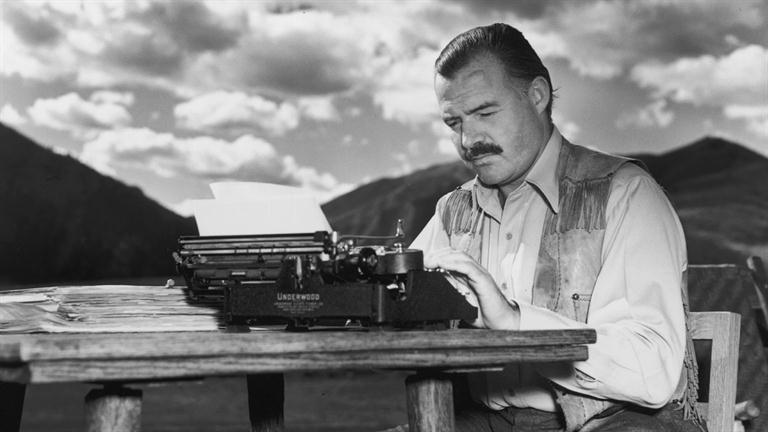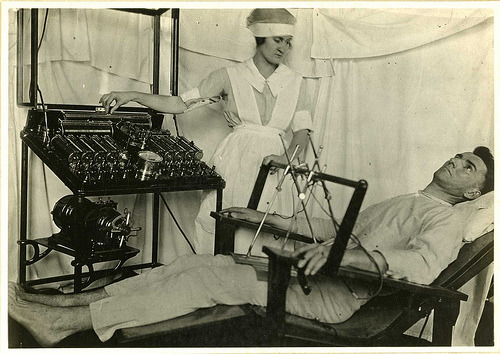Disillusionment (n); a freeing or a being freed from illusion or conviction; disenchantment.
ERNEST HEMINGWAY
In this unit, we will be reading two short stories by Ernest Hemingway, who is an American literary giant. Check out a biography of Hemingway
here.
World War I was the largest, international conflict people had ever seen, and it caused people to change their view of the world. People became full of despair, delusional, horrified that everything would fall apart, and it made them lose faith. In Hemingway’s "In Another Country," there is one character in the story who is known as Major. He is a smaller part of the story, but a perfect example of the kind of “loss of faith” that people were beginning to experience because of the war. Here are
some questions for this story.

This story is very ironic in its title and storyline. Hemingway doesn’t bother to tell people why Krebs is the last to return home or what happened in the meantime, but Harold simply comes back late and cannot find his place when everyone else is already settled. It is a great tale that speaks to “fitting in” as well as being “left behind.”
A central part of understanding the characters of Hemingway’s stories about World War I is understanding what is meant by the Lost Generation.
- World War I was supposedly fought to save Western Civilization, but the terrible human costs of The Great War and the materialism of the 1920s caused much disillusionment among writers, artists and people at large.
- One result of the war was a pervasive feeling of doubt and cynicism in all that once was valued by society. It was this that caused fellow writer Gertrude Stein to comment to Hemingway that those who survived the war were, “a Lost Generation.”
- In A Farewell to Arms(1929) Frederic Henry says in Hemingway’s novel, “I was always embarrassed by the words sacred, glorious, and sacrifice and the expression in vain. We had heard them…and read them…and I had seen nothing sacred, and the things that were glorious had no glory and the sacrifices were like the stockyards in Chicago if nothing was done with the meat except to bury it.”
- The following fictional letter from the novel Company K, by William March of Alabama also captures the feelings of the Lost Generation. “Dear Madam”, it begins, “your son, Francis died needlessly in Belleau Wood,” and “at the time of his death he was crawling with vermin,” his “feet stank,” and he was living “like a frightened animal, cold and hungry,” until “a piece of shrapnel hit him and he died in agony, slowly,” suffering for “three full hours screaming and cursing by turns,” with “nothing to hold on to,” since he had already learned that everything you “taught him to believe…under the meaningless names of honor, courage and patriotism, were all lies.”
- To understand the characters of these stories you must understand that the war had made these people without an ethical and/or moral foundation that still had meaning. Did Christmas change for you when you found out there was no Santa? Imagine if all of the values you believed in were like Santa. How would your motivations and purposes in life change?




